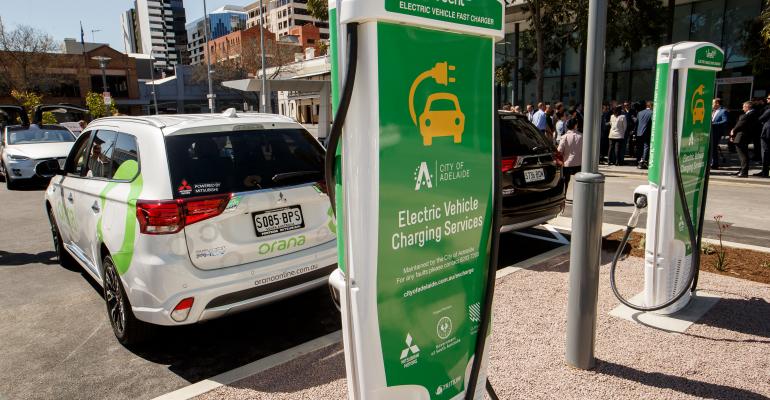The Australian government says it won’t ban the sale of new gasoline- and diesel-powered cars, but it’s divided on whether to encourage the electric-vehicle industry.
France and the U.K. are ending the sale of new diesel and gasoline cars by 2040, and Norway and the Netherlands aim to do so by 2025.
A spokeswoman for Transport Minister Barnaby Joyce tells the Sydney Morning Herald the government has no plans to follow suit.
“Australia’s transport policies are modeled on Australia’s needs,” the newspaper quotes the spokeswoman as saying.
Joyce’s office did not respond to WardsAuto requests for further comment.
Michael Roth, head of public policy-Royal Automobile Club of Queensland, says it’s time Australia started to look at ideas to promote the use of EVs.
“Australia has little or no government leadership when it comes to electric vehicles, and that’s largely to blame for our low rate of purchase,” Roth says in a statement.
“Most countries which are encouraging the takeup of EVs have incentives, whether they be up front like a rebate or aftermarket such as no tolls or reduced taxes,” he says. “The fact is Australia will remain last on the list of countries to have a large number of electric vehicles until the federal government implements some real incentives for motorists looking to purchase a new car.”
Government officials appear to be split on the future of EVs in Australia.
Environment and Energy Minister Josh Frydenberg, in an opinion piece published in the Sydney newspaper, is pushing the prospects of EVs.
But Parliament members Craig Kelly and Tim Wilson say they will oppose any government subsidies to the EV industry.
Kelly, a well-known climate-change skeptic, cites the government’s online Green Vehicle Guide in claiming a Tesla EV powered by a coal-intensive electricity grid emits more greenhouse gas than a Toyota Corolla.
The Herald reports the International Energy Agency says financial incentives are essential for reducing the cost gap between electric and conventional vehicles. It says incentives encourage sales, leading to a rise in production and technology development and a lowering of the cost of EV components.
The newspaper says the debate over the environmental merits of EVs follows a 2016 government-commissioned report that said EVs driven in Victoria, New South Wales and Queensland states – where power derived from coal is highest – have a higher carbon-dioxide output than those emitted from comparable gasoline cars.
In his opinion piece, Frydenberg writes the government already supports EVs in several ways, including a discount on the unpopular luxury-car tax threshold.
“Better coordination of existing and future activities around research and development, charging infrastructure planning, vehicle fleet targets and financial incentives will bode well for the industry in the exciting decade ahead,” he says.
“A global revolution in electric vehicles is under way and with the right preparation, planning and policies, Australian consumers are set to be the big beneficiaries.”





